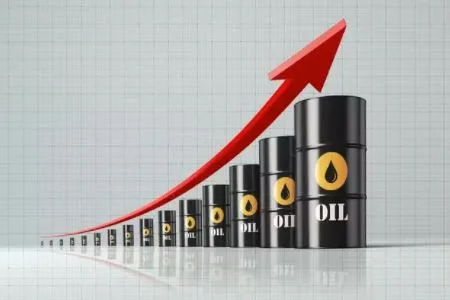Fuel Subsidy Removal: Economic Strategy or Crisis Catalyst?
Nigeria’s removal of fuel subsidies is a major turning point in its economic strategy. With petrol prices now exceeding N1,000 per litre in many cities, the government claims this move is necessary for long-term economic stability. By eliminating subsidies, Nigeria hopes to free up funds for critical sectors like healthcare, infrastructure, and education. But as prices soar, many Nigerians are left wondering: Is this bold reform creating more problems than it solves?
President Bola Tinubu’s administration argues that the decision to let market forces determine fuel prices is the best way forward for Nigeria’s economy. “We need to modernise the economy,” said an official from the Ministry of Finance. “Subsidies were draining public funds that could be better used for development.”
Join our WhatsApp ChannelHowever, the people who feel the pinch of this policy shift the most are those with the least to give. Transportation costs are skyrocketing, and with them, the prices of basic goods and services are rising too. The government insists that these pains are temporary, but the absence of targeted social welfare programs to cushion the blow raises alarms among many Nigerians.
The Rising Cost of Living: A Burden for the Poor
For the average Nigerian, especially low-income families, the removal of fuel subsidies means one thing: survival just became harder. Families who spend a large portion of their income on fuel and everyday necessities are now at risk of being pushed further into poverty. “How are we supposed to survive?” asked Sadiq, a Lagos bus driver. “The fuel price is too high, and I can barely afford to feed my family.”
According to economic experts, the price hike is likely to worsen the country’s already high inflation rate. Transportation costs are the first to feel the impact, leading to higher prices for goods across the economy. Nigeria’s inflation rate, already a concern, is expected to rise significantly due to these increased costs.
“We knew that removing subsidies would create short-term challenges,” admitted an economic advisor to the government. “But in the long run, this reform will benefit the country by redirecting funds to critical sectors. What we need now is patience.”
Social Welfare Gaps: Who Will Protect the Most Vulnerable?
The logic behind deregulation is straightforward: free up government funds, stimulate competition in the oil sector, and foster long-term economic growth. However, critics argue that the government has failed to address the immediate needs of those most vulnerable to the price hikes. Social safety nets, such as cash transfers or transportation subsidies, which could have helped ease the burden on the poor, are largely absent.
Dr. Kemi Adebayo, an economist and social policy analyst, said, “The removal of subsidies is not inherently bad. But where is the government support for those who will struggle the most? This gap in planning could derail the intended benefits.”
READ ALSO: Lawmakers Warn Of Unrest Over Fuel Price Hike
The government’s lack of robust social programs is seen by many as a glaring oversight. The absence of these welfare measures raises concerns that the long-term gains promised by the government may not be felt by those who need them most. Without financial assistance or access to affordable transportation, many Nigerians fear they will be left behind in this new economic landscape.
Trust and Transparency: Will the Funds Be Used Wisely?
Another key issue surrounding the removal of fuel subsidies is whether the government can be trusted to use the freed-up funds effectively. Nigeria has a history of corruption and fiscal mismanagement, which casts doubt on whether these savings will be redirected into healthcare, education, and infrastructure as promised.
“The government must ensure transparency in how these funds are used,” said Adebayo. “If the people see that the money is being invested in visible improvements to their daily lives, such as better roads, schools, and hospitals, it could help rebuild trust.”
Ensuring transparency and accountability is crucial. Without proper oversight, there is a risk that the resources saved from subsidy removal could be siphoned off by corrupt officials. The fear is that instead of benefiting the public, these funds could end up lining the pockets of a few, further entrenching the problems that the policy was meant to solve.
Global Watch: What’s at Stake for Nigeria?
Nigeria’s economic reforms are not only being watched closely at home but also on the global stage. The deregulation of the oil market in one of Africa’s largest economies could serve as a model—or a cautionary tale—for other resource-rich developing nations. If Nigeria manages the transition effectively, it could show that market-driven reforms can work without disproportionately harming the most vulnerable citizens. However, if the government fails to manage the social fallout, it risks deepening inequality and losing public trust.
“Nigeria is walking a tightrope,” said a foreign policy analyst. “This is a critical test for whether market reforms can be implemented successfully in a developing country with significant social challenges.”
Ultimately, the success of this reform hinges on the government’s ability to strike a balance between economic efficiency and social responsibility. While the removal of fuel subsidies may be a necessary step towards modernizing Nigeria’s economy, the government must ensure that the benefits are widely shared and that the most vulnerable citizens are not left to suffer in silence.
A Path Forward: Balancing Growth with Social Responsibility
The road ahead for Nigeria is fraught with challenges. The government has embarked on a bold experiment, and whether it succeeds depends largely on how it manages the social impact of its decisions. Implementing effective social programs, ensuring transparency in resource allocation, and promoting sustainable development are all critical steps to ensure that this transition benefits the country as a whole.
If managed correctly, deregulation could be a catalyst for economic growth and modernisation. But if mishandled, it could deepen social divides and erode confidence in Nigeria’s leadership.
As Dr. Adebayo put it, “It’s not just about numbers and economic theory. It’s about the people. If the government can show that it truly cares about the welfare of its citizens, this reform could lead to a brighter future for Nigeria.”
Emmanuel Ochayi is a journalist. He is a graduate of the University of Lagos, School of first choice and the nations pride. Emmanuel is keen on exploring writing angles in different areas, including Business, climate change, politics, Education, and others.


















Follow Us